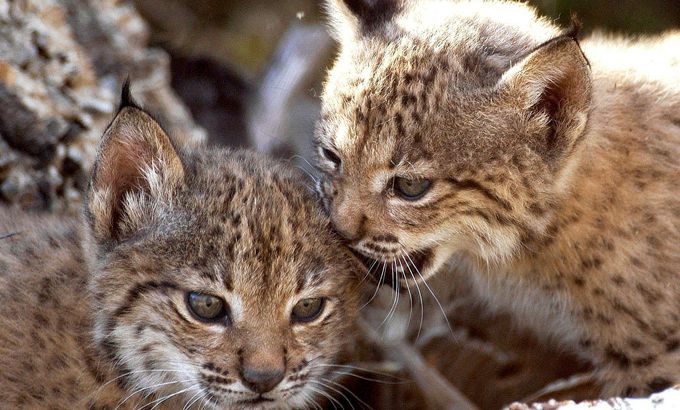
Saving the Iberian Lynx & New Zealand’s Wildlife
Thriving forests in Nepal, a comeback for the Iberian lynx, turning back time in New Zealand and the case for ‘ecocide’.
Saving the Iberian lynx
The Iberian Lynx has been pulled back from the brink of extinction thanks to a captive-breeding centre in Donana National Park, a UNESCO World Heritage Site in south-western Spain.
Keep reading
list of 4 itemsAfter the Hurricane
World’s coral reefs face global bleaching crisis
Why is Germany maintaining economic ties with China?
It started with four lynxes – three females and a male, weaklings that would have perished in the wild. Today, 30 lynxes roam a spacious, fenced scrubland area identical to their natural habitat – except for the dangers.
Early this year, the first two lynxes were released into the wild. It is hoped that in the future a larger number of young animals will be released each year.
Amanda Burrell visits the breeding centre to learn how lynxes are bred in captivity, and travels to the heart of Donana Park in search of the notoriously elusive lynx.
Nepal’s forest future
As you drive from Biratnagar towards Dharan along Nepal’s East-West highway, the forest is scattered with human settlements, and illegal logging is big business.
Between two and four percent of the total forest area is being lost every year. The logs are bound for India to meet its ever growing demand for wood. In the last two decades, a quarter of Nepal’s forest area has been plundered.
But while government owned forests are being felled at record speed, community-managed forests are thriving.
In the early 1980s some 25 percent of Nepal’s forests were handed over to the communities, and today more than 1.6 million hectares of forest is run by 16, 000 forest user groups. These forests have not only retained their vegetation but have drastically changed the lives of local people.
Subina Shrestha visits Nepal’s Terathum district to meet the people who are finding numerous ways to use the forest more sustainably, from producing hand-made paper to cultivating medicinal plants.
Mainland island
In a forested valley just minutes from downtown Wellington, a community-led organisation is spearheading an extraordinary vision: to restore a corner of mainland New Zealand to the way it was ‘the day before humans arrived’.
Many of New Zealand’s rarest native animals and plants are thriving and living free in a unique haven, safe from introduced predators – a so-called “Mainland Island”.
Belinda Henley joins the sanctuary’s staff for a momentous occasion – the release of several hand-reared Takahe, one of the rarest birds in the world, who are due to join the dozens of other safeguarded species.
Crimes against the planet : Polly Higgins
In April 2010, Polly Higgins, a Scottish lawyer, proposed to the United Nations that ‘ecocide’, the mass damage or destruction of ecosystems, be classed as a crime under international law, alongside genocide, crimes against humanity, crimes of aggression and war crimes.
Polly has gained worldwide acclaim for her work, and her latest project has been to set up a keenly anticipated mock trial to examine how an Ecocide Act would play out in practice.
Al Jazeera‘s Russell Beard joined Polly at London’s Supreme Court, where two senior barristers and their teams were preparing for an event that could pave the way for dramatic changes to the way ‘eco crimes’ are prosecuted.